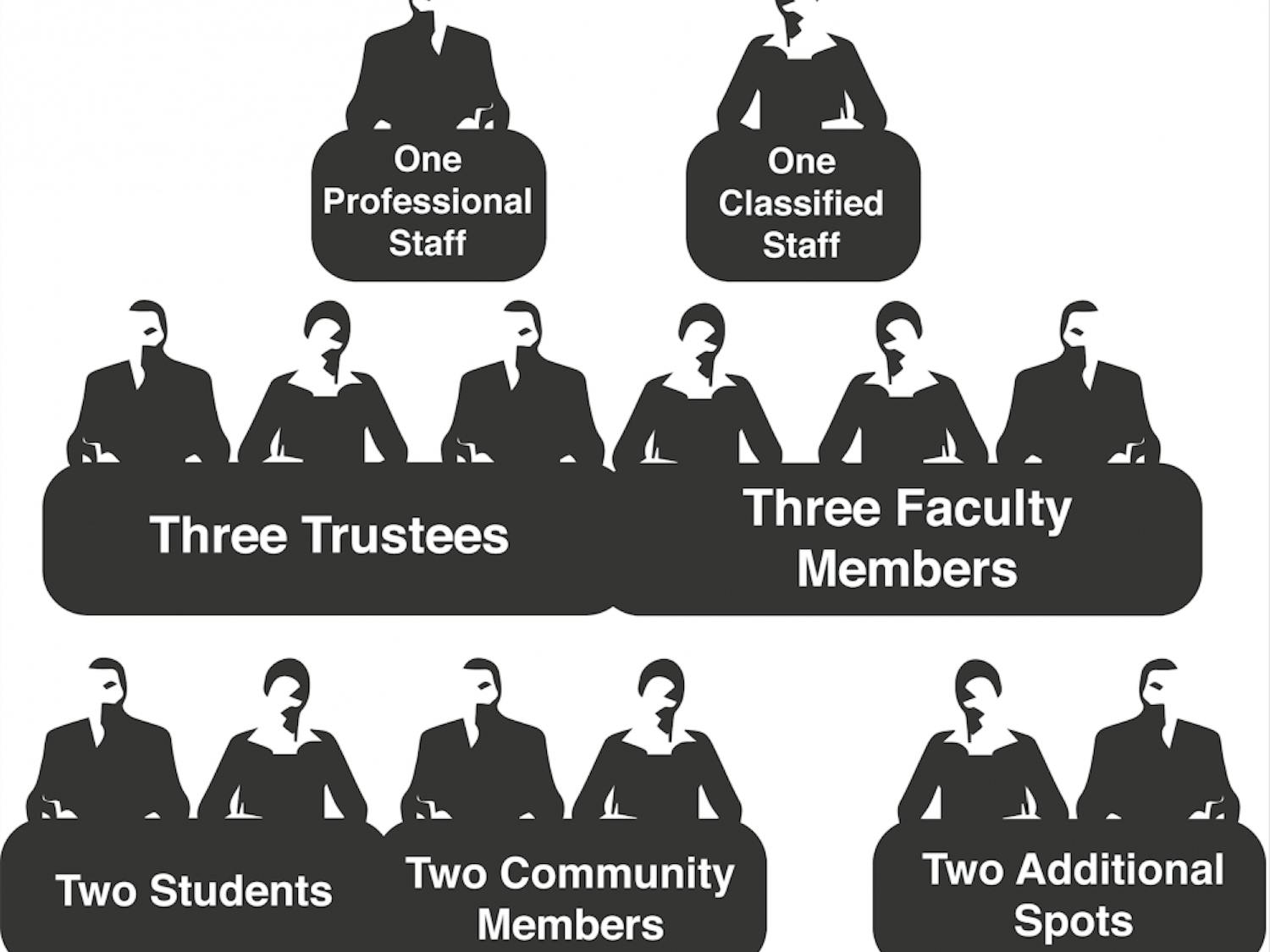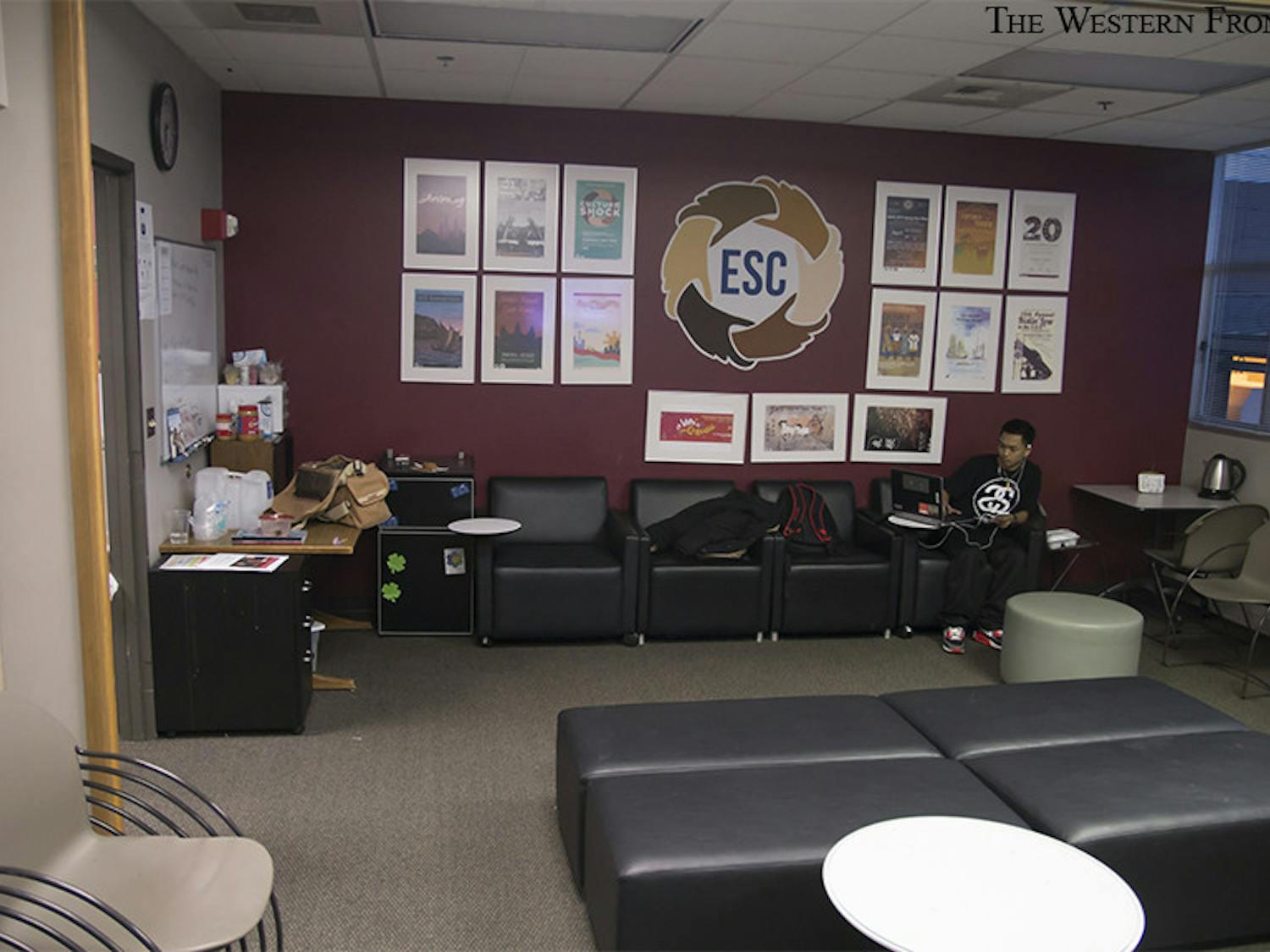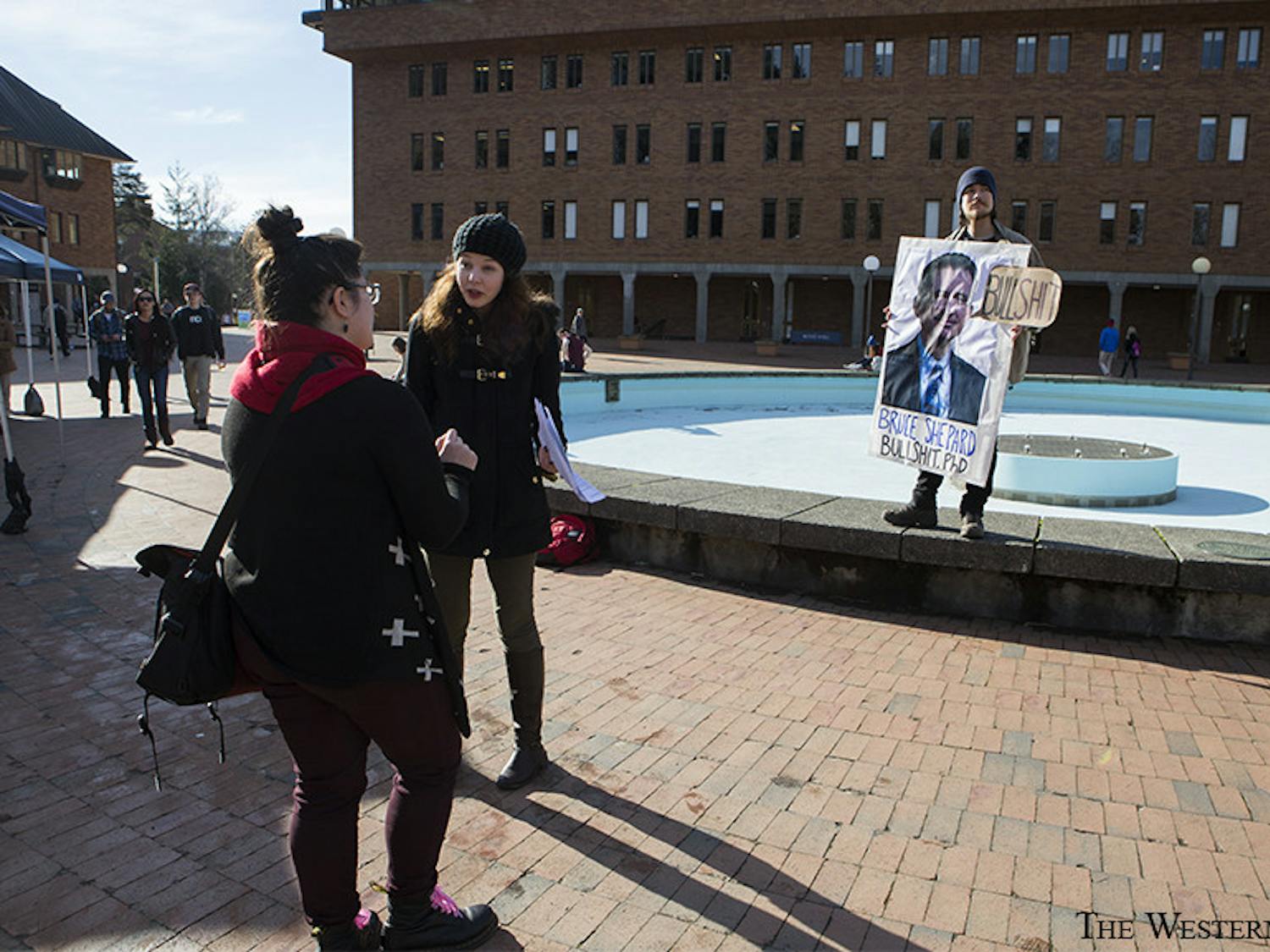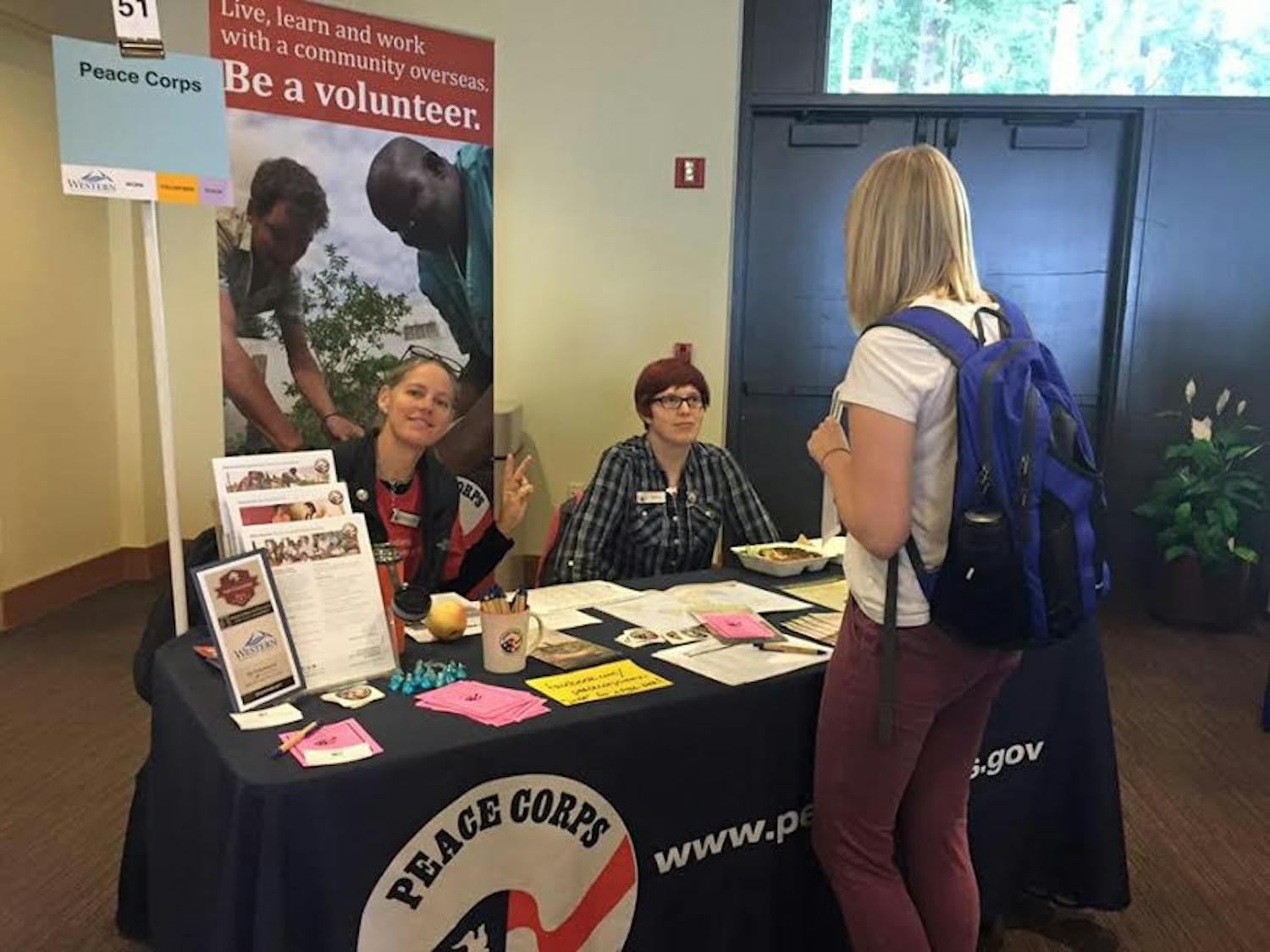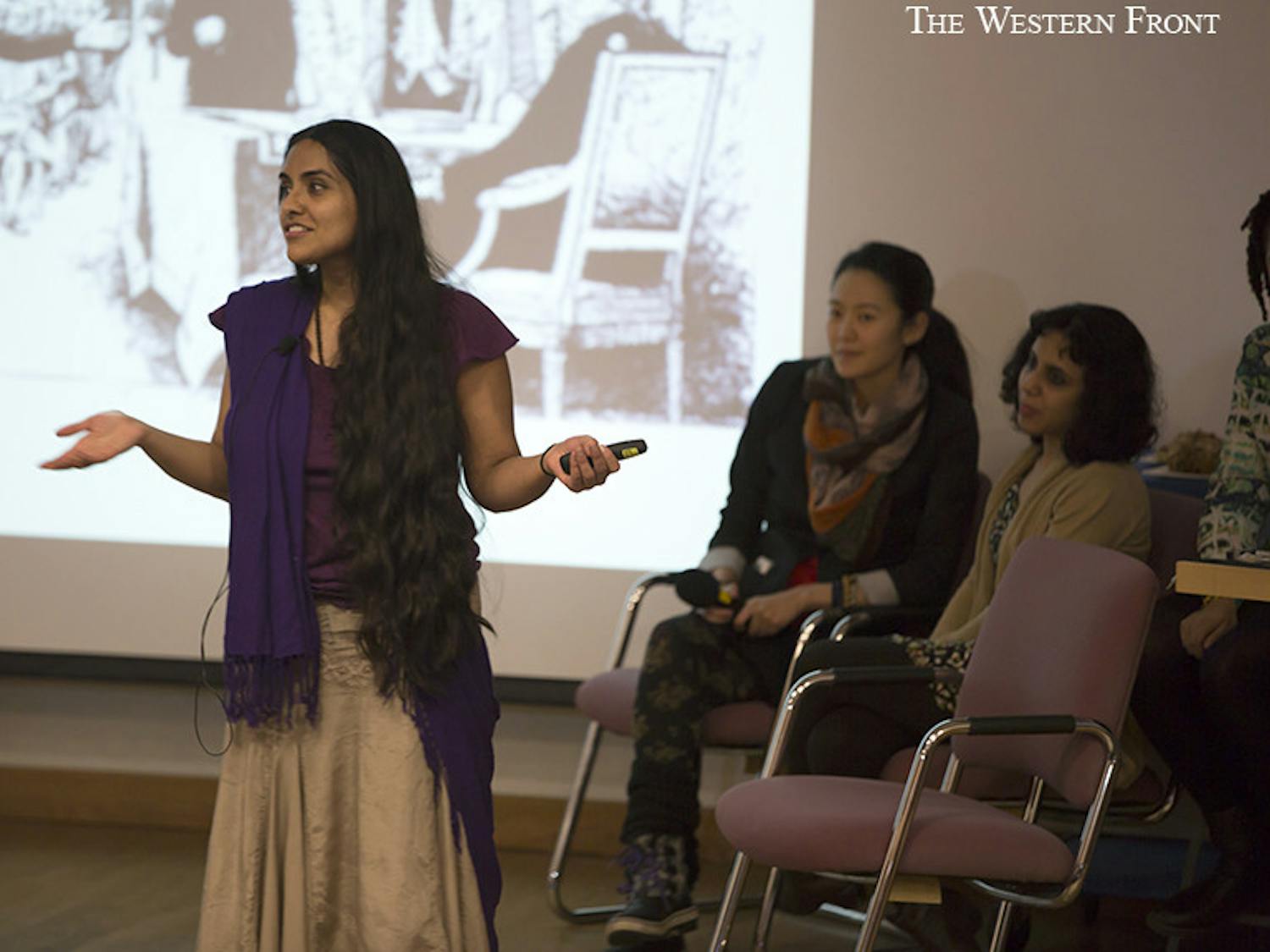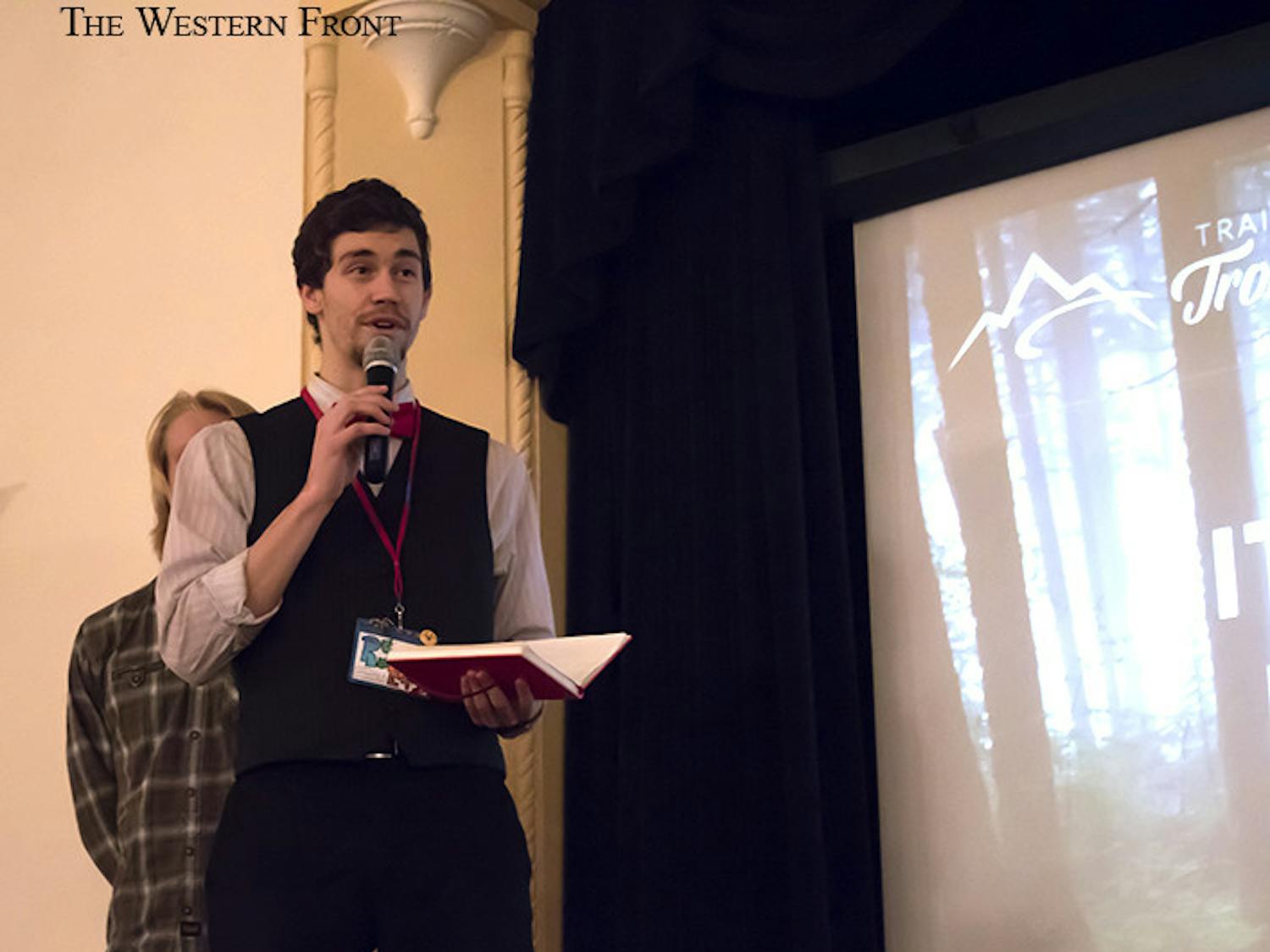News
Logging threatens Oyster Dome overlook
By The Front | February 9A section of Blanchard Forest containing multiple lakes and hiking trails, including the popular Oyster Dome outlook, is in danger of being logged in the summer of 2017.
WWU Theatre production responds to Nov. threats against AS president
By The Front | February 9The day after their performance at Western’s Performing Arts Center on Feb. 6, the cast, crew, and faculty directors in Western theatre’s production of “Topdog/Underdog” packed their bags and headed for Mexico City. The troupe is set to perform Feb. 9-10 at an international university theater festival, the Festival Internacional de Teatro Universitario, hosted by the National Autonomous University of Mexico, one of the largest universities in Latin America. “Topdog/Underdog” follows two brothers, Booth and Lincoln, both black, working to figure out how to deal with poverty, gambling, racism, women and their own complicated family. It won playwright Suzan-Lori Parks the Pulitzer Prize for drama in 2002. She was the first African-American woman to win the award. Director Mark Kuntz said he chose this play in reaction to the racially charged threats directed toward Western Associated Students President Belina Seare via social media in November 2015. “This is a story about brothers, but putting it in the framework of Western, there is also something that means more to this community, and as we take it to Mexico it is going to mean something totally different to them,” actor Teague Parker said. Festival Internacional de Teatro Universitario hosted Western students last year when they performed a collaborative play from a Mexican director. This year will be the first time Western has brought its own production. “We should be exposing our students to these stories. I think when we are exposed to these stories we are smarter people,” said Kuntz. “So this is hopefully the beginning of a continued effort to tell stories of people who will broaden our perspective of the world.” This is the first time Western has performed a play written by an African-American woman. It is only the second time Western has performed a play written by an African-American, the first being Jeff Augustin’s “Corktown” in 2014. “Topdog/Underdog” is a play with minimal elements. The entire play takes place in a single, lightly furnished New York City apartment, eliminating the need for set changes, which is ideal for taking to Mexico. The only two characters in the show are the two brothers. Booth, played by Western theater student Parker, and Lincoln, played by Michael Smith, a theater student from the University of Idaho. The troupe heading to Mexico contains five Western students, Megan Birdsong, Kristina Cox, Janelle Kimbrough, Ryan Strecker and Parker; two Western theatre professors, Director Mark Kuntz and Darren McCroom, along with Smith from University of Idaho. They will be in Mexico for a week, performing twice, participating in workshops and experiencing the culture of Mexican theater. Western will be the only university from the U.S. to attend. Other international guests include theater troupes from Poland, Germany, Spain, France and Colombia. “It is supposed to be an international festival but they have their own resident performances and I want to see what their style of is and how they operate,” said Birdsong, a stagehand. “Even from a technical perspective, I would love to see how they do things behind the scenes.” Mexican theater deals with broader topics and uses abstractions and symbols to tell a story, Kuntz said. Their plays are also very political, he said. “It’s a voice for young artists to share their political situation and they hold theater to a very high standard that way,” Kuntz said “You are expecting to talk about our cultural condition, about what’s going on in our world and be assaulted by it.” After Mexico, Kuntz, Parker and Smith will be going to Denver, Colorado for The Kennedy Center American College Theater Festival Region 7 Feb. 15-19.
Students petition administration for new building
By The Front and Alyssa Evans | February 9Standing elbow to elbow, roughly 100 students crowded into the hot room in an effort to showcase their need for a larger space. Tired of the room they have been utilizing for 25 years, users of the Ethnic Student Center decided to strive for change.
Letter draws Red Square protest
By The Front | February 9With a large cutout of President Bruce Shepard’s face in hand, three protesters gathered in Red Square on Monday, Feb. 8, to voice objections to an email sent by Shepard regarding the need for a larger Ethnic Student Center space.
Speaker sheds light on the true cost of war, ISIS
By The Front | February 5Phyllis Bennis opened her speech by clarifying a rumor: the Islamic State group did not start when Obama pulled troops out of Iraq, she said. Bennis, the author of “Understanding ISIS and the Global War on Terror: A Primer,” spoke at Western on Wednesday, Feb. 3, as part of Fairhaven’s World Issues Forum. About 100 people filled Fairhaven College Auditorium to learn more about ISIS. About one-third of the attendees were community members, while two-thirds were students. Bennis said that ISIS started in 2004 during the Bush administration, while the United States occupied Iraq. Citizens in Iraq disagreed with the United States occupancy because of the civilian casualties, Bennis said. “Every time people get killed over there, someone gets angry,” she said during her speech. Instead of more violence, Bennis said that the U.S. should stop sending more weapons into the area, and withdraw the troops from combat, as well. “What really irritates me is to hear some of our politicians spout off about how they are going to destroy ISIS. The first thing you should be doing is getting rid of the symptoms for ISIS,” said Gene Marx, the coordinator for Bellingham’s Veterans for Peace chapter. Gene Marx said he wants to work toward abolishing war and increasing awareness to the true cost of war. Veterans for Peace co-sponsored the event, along with the political science department, Whatcom Community College and Voices for Middle East Peace, according to the College of Humanities and Social Sciences website. Parallel with Bennis’s goals, Bellingham’s Veterans for Peace chapter was founded in 2004 to help educate others on the cost of war. “As we are speaking now, we are spending somewhere along the line of 7,000 dollars a minute dropping bombs on ISIS,” Marx said. “My grandkids will be paying for this war.” That number equates to about one quarter of tuition at Western for Washington state residents. Marx recommends going to the root of the problem. Veterans for Peace addressed the root of the Iran deal by talking to their lawmakers, he said. “Some of our members here in town were speaking to Rick Larson and convinced him to support the Iran deal,” he said. Marx wants to engage in conversation with those who don’t believe discussion can be more effective than violence, he said. “There are so many examples of where talking works,” Marx said. “How about Martin Luther King Jr.? That’s a non-violent movement. How about Gandhi?” Freshman Madi Morrison said she attended the event to get a better understanding of ISIS. “What I got out of [the speech] was, when it comes to foreign policy, the U.S. should really try to be more compassionate and start considering other options rather than just going straight to bombing and using more military force,” Morrison said. Morrison reflected on the first policy goal Bennis discussed in the presentation. “I really liked what she said about first and foremost trying to do no harm,” Morrison said. “I think that’s probably the most important thing when we’re talking about innocent lives.” Now, Morrison wants to follow the news to stay up to date on ISIS, and find opportunities to help refugees, she said. Bennis said students can learn more by reading books and joining organizations that will instruct them on talking to members of Congress. Bennis’ book is available at the Associated Students Bookstore.
Journalism students respond to proposed bill
By The Front | February 2“I think it will be beneficial for both the school and the publication. I think it would give the publication more room for expression — it wouldn’t have to worry as much about ties with the university, so they could be a little bit more open and opinionated, which I think is always a good thing when it has to do with freedom of expression.”
With Carver gutted, Rec Center adapts to influx of varsity athletes
By The Front and Alyssa Evans | February 2
App designed for travelers with disabilities wins 54 hour startup challenge
By The Front | February 2For participants, this may just be the start of potential future companies. Wandke and his group have plans to bring their services to the community someday, now that they are prepared with the experience and resources necessary to make them come to life.


